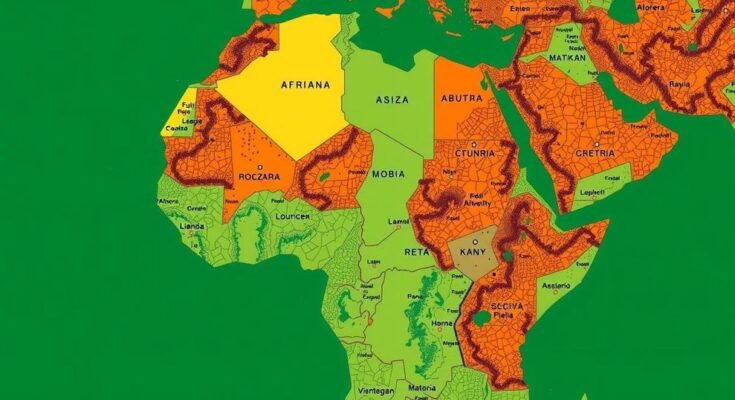The Climate, Peace and Security Fact Sheet for October 2024 outlines the significant climate and security challenges facing the Central African Republic, emphasizing the interplay between climate change impacts, ongoing conflict, and humanitarian crises. It provides critical recommendations for the international community to support stability and resilience in the nation.
The Climate, Peace and Security Fact Sheet for the Central African Republic, dated October 2024, highlights the multifaceted challenges confronting the nation, primarily linked to the interplay of climate change, conflict, and insecurity. The document delineates a spectrum of recommended actions for the international community to adopt in order to ameliorate these pressing issues. The Central African Republic (CAR) finds itself particularly vulnerable to the ramifications of climate change, exacerbated by profound socioecological weaknesses and persistent security threats. Key drivers of this vulnerability include the lack of effective state governance, mismanagement of natural resources, and the subdued resilience of both households and communities. Although recent years have witnessed some improvement in the security landscape, the situation remains precarious, with continuing clashes involving factions of the Coalition of Patriots for Change (CPC), various self-defence groups, and bandits, who frequently engage with government forces and allied entities, including mercenaries linked to the Wagner Group, now referred to as Africa Corps, particularly in rural areas. Moreover, alterations in climate patterns, coupled with the deteriorating security dynamics in the Sahel and Great Lakes regions, have compelled transhumant pastoralists to advance further into CAR earlier than usual during the transhumance season, thereby heightening communal tensions. The ongoing conflict in Sudan has also exacerbated the humanitarian crisis within CAR, specifically impacting the Vakaga and Haute-Kotto prefectures.
The Central African Republic’s dire situation can be attributed to ongoing challenges posed by climate change and persistent conflicts stemming from political instability and other socio-ecological vulnerabilities. Natural resource mismanagement further contributes to the country’s struggles, while the ramifications of regional instability, such as the conflict in Sudan, have resulted in increased humanitarian pressures within CAR. Understanding these dynamics is critical for devising effective international responses aimed at mitigating these challenges and enhancing stability.
In summary, the Central African Republic faces severe challenges due to the dual impacts of climate change and conflict. Vulnerabilities are exacerbated by ineffective governance and resource management, leading to continued volatility in security. The international community’s proactive engagement and implementation of strategic recommendations are essential for addressing these multifaceted issues, promoting resilience, and fostering a more stable environment in CAR.
Original Source: reliefweb.int




